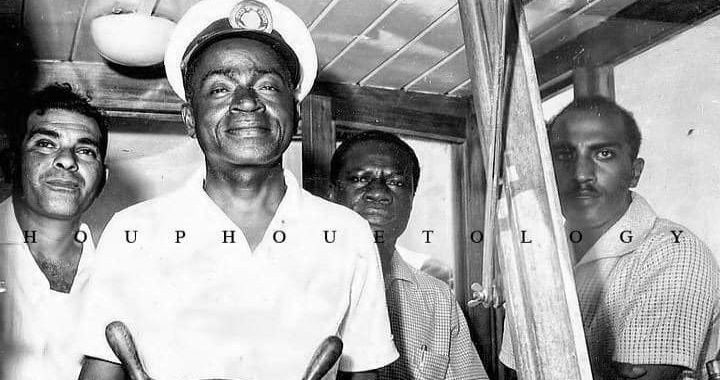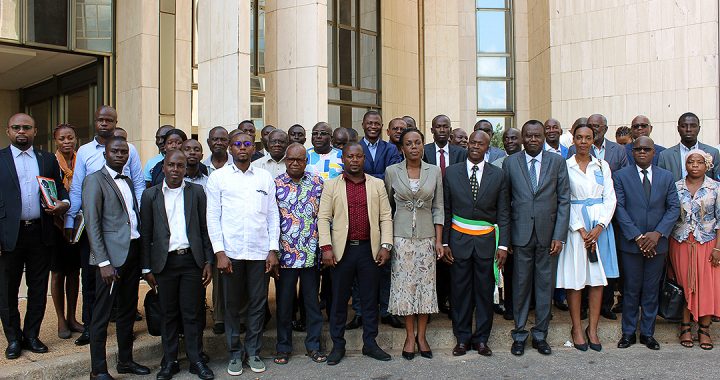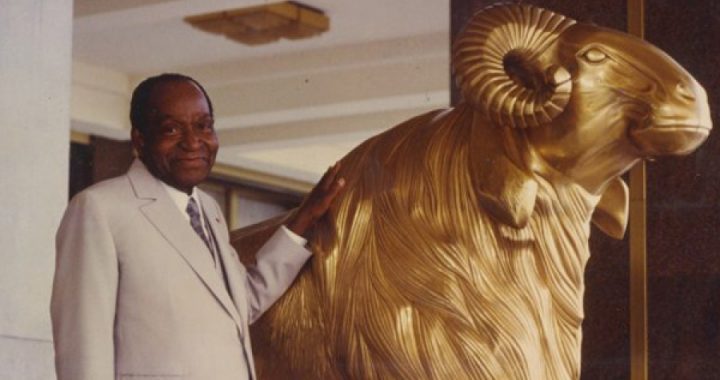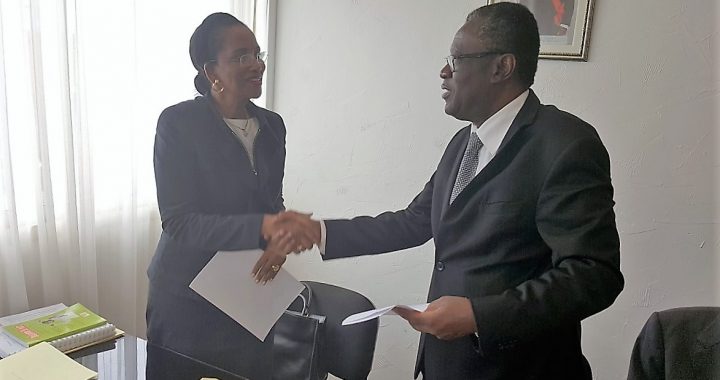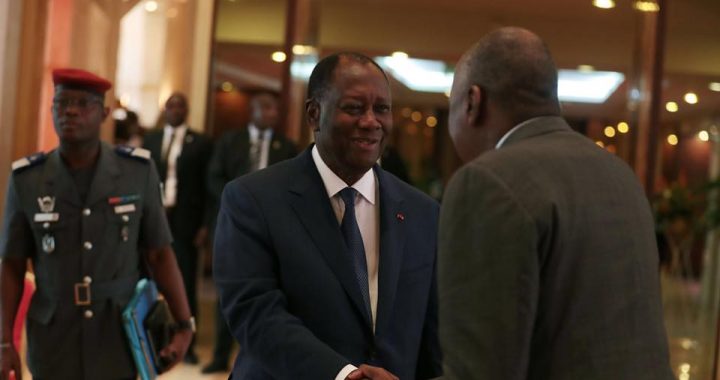Organized by the Research Group of Strategists in Ivory Coast (GRESCI) and Félix
Houphouët-Boigny University in collaboration with the Félix Houphouët-Boigny
Foundation and the Institute for Strategic Research of the Military School (IRSEM).
CALL FOR PAPERS
GRESCI and FHB University are pleased to partner with the Félix Houphouët-Boigny
Foundation and IRSEM to hold a symposium to analyze the legacy of the Ivorian crisis, with
an emphasis on current and future dynamics, through looking back twenty years after the
outbreak of the civil war on September 19, 2002. This conference will take place from
September 19 to 21, 2022 at the headquarters of the Félix Houphouët-Boigny Foundation for
Peace Research in Yamoussoukro, Ivory Coast.
Twenty years after beginning of the war in Côte d’Ivoire, it is beneficial in time of peace to
draw lessons from the war. Ivory Coast had been for a long time an island of stability in West
Africa marked by instability. But the country entered a phase of crises which led to the start of
a politico-military crisis on September 19, 200, which lasted for a decade. The long negotiation
process initiated by the Economic Community of West African States at the beginning of the
war gradually opened up to various actors, but was unable to spare the country from a deadly
end to the crisis. Indeed, the 2010 presidential election, which was supposed to bring peace and
democracy, increased divisions while exposing the fragilities of a decade of crises. On April
11, 2011, more than 3,000 deaths ended the tragic page of the war in the country.
Ended, the word seems strong as war transforms societies and has a lasting impact on the
progress of a nation. In fact, the Ivorian crisis seems to be an ideal terrain for understanding the
complexity of civil wars and for analyzing post-crisis reconstruction approaches which, beyond
economic performance, are rooted in democracy, the preservation of freedoms and citizenship.
The writings and productions on the subject have shown the particularities of the Ivorian case
as a land of immigration, of tensions between democratic openness and authoritarian practices,
in a context of particularly strong ties between France and Ivory Coast.
The crisis itself called into question Ivorian strategic choices in terms of defense and diplomacy,
the role of France and, more broadly, of the international community – including pan-African
institutions – in conflict prevention and management. International actors and institutions have
been at the heart of conflict management and the post-conflict reconstruction process, both in
terms of justice with the International Criminal Court, peace and security through the role of
the United Nations Operation in Côte d’Ivoire and the French Licorne operation, and in terms
of economic recovery with the Bretton Woods institutions, the European Union, and the United
States, among others. Beyond international action, the local dynamics of post-crisis
reconstruction have been the subject of much research. Paradoxically, the crisis was a catalyst
for synergies and mobilization of energies that gave rise to a tremendous artistic and cultural
activity, of which the coupe-decalé was one of its exemplification. In short, war and peace in
Ivory Coast is the product of a dual local and international logic, whose causes and effects are intertwined.
What lessons can be drawn from the years of the Ivorian crisis and post-conflict reconstruction? Which of yesterday’s dynamics have disappeared, which have persisted? How does the trajectory of the Ivorian crisis and post-crisis period fit into the history of West African civil conflicts? The importance of Côte d’Ivoire in the subregion and the interest in the study of conflicts have encouraged the production of several books, articles and other reflections on the crisis in Côte d’Ivoire. However, two decades after the beginning of the war, there is a need for a global reflection mobilizing practitioners and researchers, looking globally at its various facets.
The organizers invite researchers and practitioners to submit abstracts of 250 words specifying the axis in which they wish to intervene. Please send contributions in French or English, from April 15 to May 20, 2022 and to the following address: colloquevingtansciv@gmail.com.
Within the framework of this symposium, the following themes are envisaged:
– Axis 1. Origin and causes of the Ivorian crisis and beyond, what remains of it today?
– Axis 2. Living at the pace of war: mutations, political life, freedoms and human rights, relationships to the sub-region, arts, rebel governance, living in war in government territories and scientific productions.
– Axis 3. International actors during war and reconciliation in Ivory Coast: UN, France, ECOWAS, AU, Licorne operation, UNOCI, ICC, high-level personalities, development aid actors.
– Axis 4. Consequences and mutations linked to the conflict: living the post-conflict, reconfigurations of the social order, ex-combatants, post-conflict socio-economic transformations, local power in the post-war period, youth and social mobilizations.
– Axis 5. Reconstructing and reconciling in Côte d’Ivoire: economic and social aspects, diplomacy and defense, justice, democracy and citizenship, territorial equilibrium and state presence.
– Axis 6. Questioning the post-conflict model: good practices, liberal models, justice.
Please also note that contributors should approach their institution to obtain funding to attend the conference. Some limited funds will be available to support colleagues whose proposals are accepted, but this cannot be guaranteed at this time.



